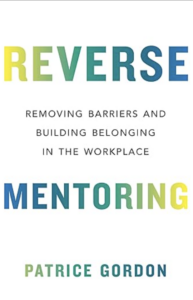
DEIB
The 6 Best TED Talks About Diversity

Sam Cook
Content Director and Employee Engagement Researcher
Jun 18, 2024
When I was a high school teacher, TED Talks were an excellent tool for helping students engage with different literary concepts. If you’ve seen even one TED Talk, you’ll recognize that they often have a specific storytelling style and often emphasize dynamic movement from the speaker, visuals, dramatic and emotional delivery, and bits of humor. That helps them make even serious topics more accessible to more audiences. As it were, there are many TED Talks on diversity and DEI-related topics that take this approach and are excellent for helping yourself or others learn more about various topics in this space.
In this post, we’ve pulled out 6 highly engaging, highly educational TED Talks on diversity that cover several important concepts:
- Equity
- Innovation
- Gender equality
- Workplace Diversity
- Battling against assumptions
- Reverse mentoring
And, since I told you I used TED Talks during my years teaching, there’s a bonus at the bottom: A spoken word poem TED Talk that I commonly used with my students on the importance of raising strong and emotionally intelligent daughters.
1. Let’s Stop Talking About Diversity and Start Working Towards Equity
Paloma Medina makes the bold claim that we should stop talking about diversity, and backs up her suggestion with a humorous anecdote that takes us all the way back to the Stone Age. She reframes diversity as a metric by which we can measure equity, and it is with equity that we feel this belonging. In just over fifteen minutes, Medina skilfully causes us to rethink how we can create cultures with racial and gender equity that truly make a lasting impact.
Supplemental material: Paloma Medina puts a significant amount of emphasis on the danger of bias and how it negatively impacts DEI in the workplace. You can learn more from her about this topic in this How I Hire podcast episode, where she discusses the Psychology of Bias.
2. How Diversity Makes Teams More Innovative
Though this talk dates back to 2017, Rocío Lorenzo still delivers points that ring true here in the 2020s. She talks through research from her team that, very frankly, stated that more diverse teams were more innovative, and more innovative companies had a more diverse leadership too (something McKinsey data backs up)! Lorenzo brings together her argument neatly and creates an understanding of the benefit true diversity and inclusion bring when handled correctly.
Supplemental material: Rocío Lorenzo based her TED Talk on a study that she and her team worked on to highlight the benefits of diversity in the workplace and its impact on innovation. We recommend digging into that study yourself to get a better understanding of the data her team found and more on how they analyzed it.
3. Why Gender Equality Is Not Just About Women
Caroline Strachan points out that, while we have addressed an imbalance that did exist, it is time to move on from a basic discussion of women in the workplace. Companies that focus purely on gender equality as a box-ticking exercise will only end up perpetuating conscious and unconscious beliefs about both women and men. Strachan invites us to consider thinking about diversity and inclusion as being “people issues” that we all own, rather than just belonging to one particular group.
Supplemental material: Caroline Strachan focuses a large part of her TED Talk on how childcare is a significant part of gender equality in the workplace, and how it impacts everyone, not just women. McKinsey & Company has an excellent study on the benefits of paternal leave that can help add value to her discussion.
4. The Surprising Solution to Workplace Diversity
Arwa Mahdawi’s talk tells us that there is no quick solution to inclusive issues – something we think everyone understands. She instead chooses to break it down into four main principles:
- An interview process that focuses on talent
- The courage to speak up when things are too homogeneous
- The demonstration of the profit value of a diverse workforce.
- The importance of leaving the term diversity behind us, because the concept of tokenism doesn’t work.
Supplemental material: In her TED Talk, Arwa Madhawi highlights a joke website she created called Rent-a-Minority to help highlight how ridiculous some companies’ approach to DEI has become. We recommend you check this one out to give you some context to her TED Talk and the way she thinks about workplace diversity.
5. Don’t Take the Exit on People: A Diversity & Inclusion Approach
Justin Jones-Fosu explores the assumptions we make about others, and how we don’t actually get to know other people; instead, it is more accurate to say that we get to know the assumptions we make about others. Jones-Fosu refers to this as taking the exit on people, and how we need to make extra effort to move beyond our innate assumptions to achieve true respect for one another.
Supplemental material: Justin Jones-Fosu is an accomplished author. His TED Talk draws on many of his insights shared in his book, The Inclusive Mindset: How to Cultivate Diversity in Your Everyday Life. If you want a deeper dive, we recommend checking out his book on your preferred medium.
6. How Reverse Mentorship Can Help Create Better Leaders

Patrice Gordon leverages her distinct experiences and insights to deliver a power and educational talk on reverse mentoring. In her talk, she helps viewers better understand the concept, how it’s distinct from other forms of mentoring, and how to make it work in the workplace to achieve powerful goals that impact executive leaders separately, and companies more broadly.
Supplemental material: Patrice Gordon is the author of Reverse Mentoring: Removing Barriers and Building Belonging in the Workplace. You can expand the information she provides in this short TED Talk with the in-depth stories and examples she shares in her book.
Bonus Video: If I Should Have a Daughter
As promised, here’s a bonus TED Talk for you that’s one of my personal favorites. Poet and speaker Sarah Kay offers up a powerful spoken word poem envisioning the values she’d teach her daughter, if she had one. This poem offers a view into the need parents to consider how they raise their daughters to be both independent, but emotionally intelligent and connected to the reality of struggles that come with being a woman.
Put What You Learn from TED Talks About Diversty into Measurable Action
Each of these speakers highlights the need for genuine inclusivity and diversity and offers paths and techniques for breaking through old ways of thinking. But understanding the need is only the first step; the next is implementing sustainable, impactful strategies in our workplaces.
Any organization will encounter problems when trying to create true and practical diversity amongst its teams. Our employees come from different backgrounds, and the culture within a company should reflect that. Employee resource groups (ERGs) connect employees of similar backgrounds and allow them to grow and foster connections within a company.
MentorcliQ’s ERG platform, Diverst, gives your groups the support they need for seamless operation. Reduce the burden on your ERG leads, and help them work towards creating a true sense of inclusion within your company.
Book a demo to find out how MentorcliQ’s software help align ERG-focused DEI with ROI.





